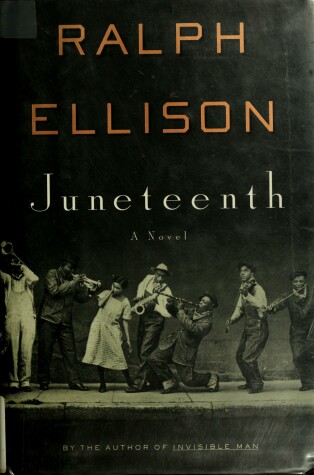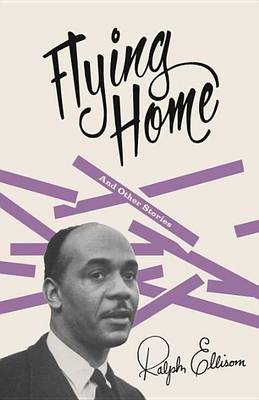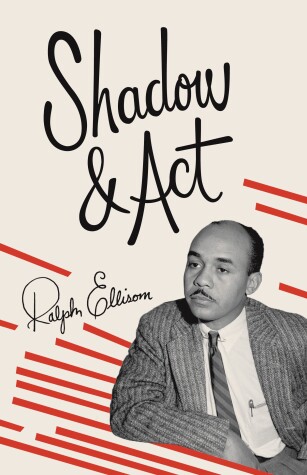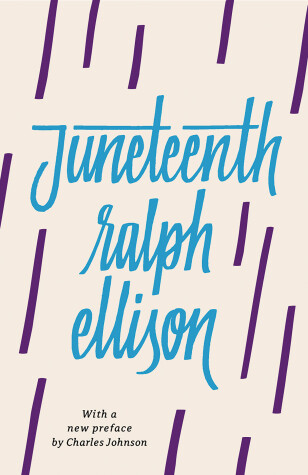Vintage International
5 total works
Invisible Man is a milestone in American literature, a book that has continued to engage readers since its appearance in 1952. A first novel by an unknown writer, it remained on the bestseller list for sixteen weeks, won the National Book Award for fiction, and established Ralph Ellison as one of the key writers of the century. The nameless narrator of the novel describes growing up in a black community in the South, attending a Negro college from which he is expelled, moving to New York and becoming the chief spokesman of the Harlem branch of "the Brotherhood," and retreating amid violence and confusion to the basement lair of the Invisible Man he imagines himself to be. The book is a passionate and witty tour de force of style, strongly influenced by T.S. Eliot's The Waste Land, Joyce, and Dostoevsky.
"Tell me what happened while there's still time," demands the dying Senator Adam Sunraider to the itinerate preacher whom he calls Daddy Hickman. As a young man, Sunraider was Bliss, an orphan taken in by Hickman and raised to be a preacher like himself. Bliss's history encompasses the joys of young southern boyhood; bucolic days as a filmmaker, lovemaking in a field in the Oklahoma sun. And behind it all lies a mystery: how did this chosen child become the man who would deny everything to achieve his goals?
Here is the master of American vernacular at the height of his powers, evoking the rhythms of jazz and gospel and ordinary speech.
"An extraordinary book, a work of staggering virtuosity. With its publication, a giant world of literature has just grown twice as tall." —Newsday
The tales in Flying Home range in setting from the Jim Crow South to a Harlem bingo parlor, from the hobo jungles of the Great Depression to Wales during the Second World War. By turns lyrical, scathing, touching, and transcendently wise, Flying Home and Other Stories is a historic volume, an extravagant last bequest from a giant of our literature.
With the same intellectual incisiveness and supple, stylish prose he brought to his classic novel Invisible Man, Ralph Ellison examines his antecedents and in so doing illuminates the literature, music, and culture of both black and white America. His range is virtuosic, encompassing Mark Twain and Richard Wright, Mahalia Jackson and Charlie Parker, The Birth of a Nation and the Dante-esque landscape of Harlem—“the scene and symbol of the Negro’s perpetual alienation in the land of his birth.” Throughout, he gives us what amounts to an episodic autobiography that traces his formation as a writer as well as the genesis of Invisible Man.
On every page, Ellison reveals his idiosyncratic and often contrarian brilliance, his insistence on refuting both black and white stereotypes of what an African American writer should say or be. The result is a book that continues to instruct, delight, and occasionally outrage readers.
"[A] stunning achievement. . . . Ellison sought no less than to create a Book of Blackness, a literary composition of the tradition at its most sublime and fundamental."—Henry Louis Gates, Jr., Time
The story follows Adam Sunraider, a race-baiting senator, whose life takes an unexpected turn when he calls for Alonzo Hickman, an old Black minister, to be by his side as he faces a mortal wound. As the two men intimately share their stories and memories, the true shape and substance of the past begin to emerge.
Here is Ellison, a virtuoso of American vernacular—the preacher’s hyperbole and the politician’s rhetoric, the rhythms of jazz and gospel and ordinary speech—at the height of his powers, telling a moving, evocative tale of a prodigal of the twentieth century.
With an introduction and additional notes by John F. Callahan, who first compiled Juneteenth out of thousands of manuscript pages in 1999, and a preface by National Book Award-winning author Charles R. Johnson.
“Beautifully written and imaginatively conceived, Juneteenth, like Invisible Man, deserves to be read and reread by generations.” —The Atlanta Journal-Constitution




